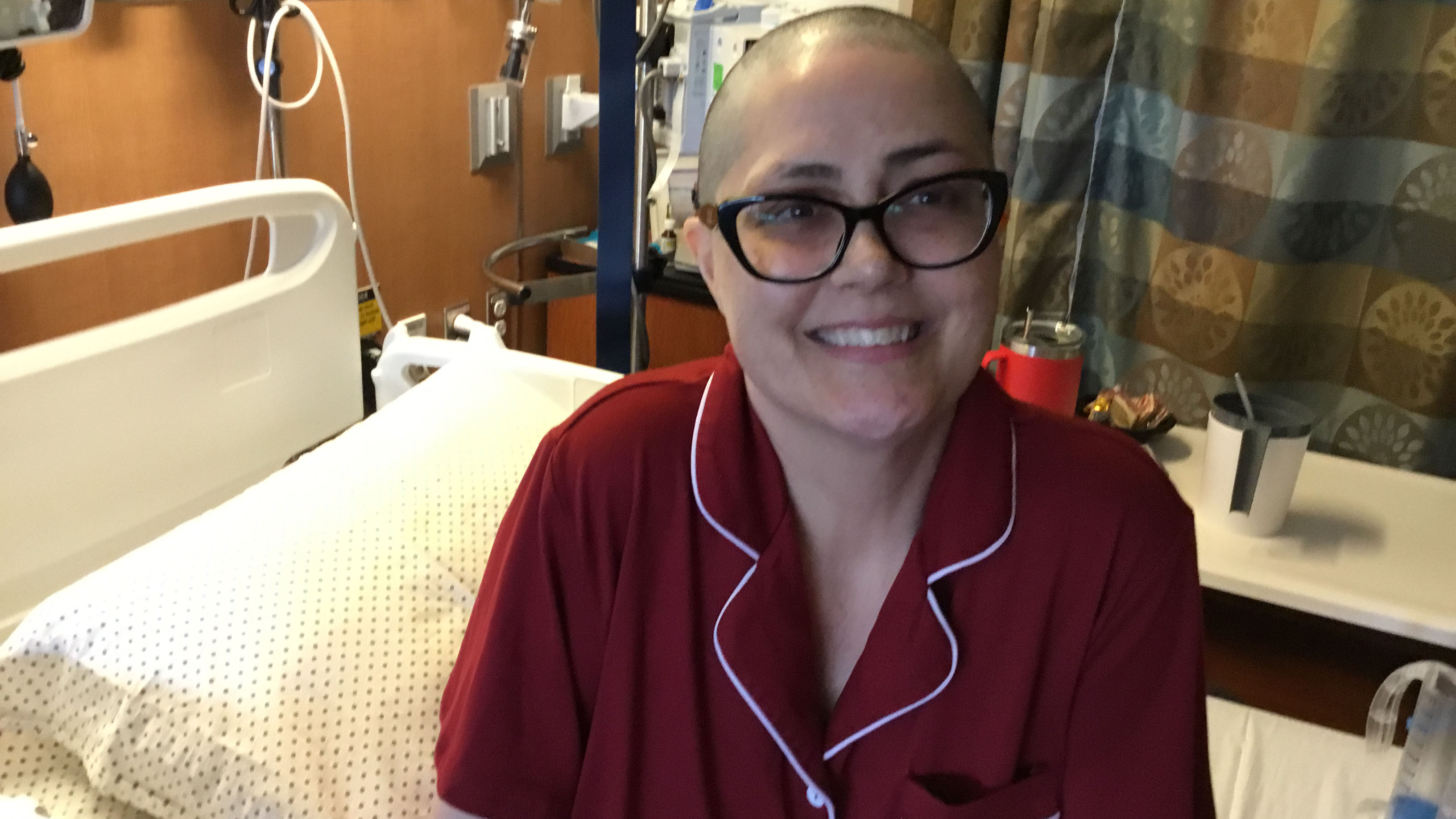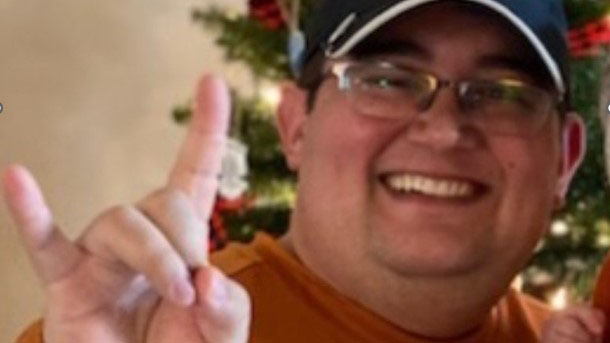- Diseases
- Acoustic Neuroma (14)
- Adrenal Gland Tumor (26)
- Anal Cancer (68)
- Anemia (2)
- Appendix Cancer (16)
- Bile Duct Cancer (26)
- Bladder Cancer (72)
- Brain Metastases (28)
- Brain Tumor (232)
- Breast Cancer (716)
- Breast Implant-Associated Anaplastic Large Cell Lymphoma (2)
- Cancer of Unknown Primary (4)
- Carcinoid Tumor (8)
- Cervical Cancer (160)
- Colon Cancer (166)
- Colorectal Cancer (118)
- Endocrine Tumor (4)
- Esophageal Cancer (44)
- Eye Cancer (36)
- Fallopian Tube Cancer (8)
- Germ Cell Tumor (4)
- Gestational Trophoblastic Disease (2)
- Head and Neck Cancer (12)
- Kidney Cancer (128)
- Leukemia (342)
- Liver Cancer (50)
- Lung Cancer (286)
- Lymphoma (278)
- Mesothelioma (14)
- Metastasis (30)
- Multiple Myeloma (100)
- Myelodysplastic Syndrome (60)
- Myeloproliferative Neoplasm (6)
- Neuroendocrine Tumors (16)
- Oral Cancer (100)
- Ovarian Cancer (172)
- Pancreatic Cancer (160)
- Parathyroid Disease (2)
- Penile Cancer (14)
- Pituitary Tumor (6)
- Prostate Cancer (146)
- Rectal Cancer (58)
- Renal Medullary Carcinoma (6)
- Salivary Gland Cancer (14)
- Sarcoma (240)
- Skin Cancer (298)
- Skull Base Tumors (56)
- Spinal Tumor (12)
- Stomach Cancer (64)
- Testicular Cancer (28)
- Throat Cancer (92)
- Thymoma (6)
- Thyroid Cancer (100)
- Tonsil Cancer (30)
- Uterine Cancer (82)
- Vaginal Cancer (18)
- Vulvar Cancer (20)
- Cancer Topic
- Adolescent and Young Adult Cancer Issues (20)
- Advance Care Planning (10)
- Biostatistics (2)
- Blood Donation (18)
- Bone Health (8)
- COVID-19 (362)
- Cancer Recurrence (120)
- Childhood Cancer Issues (120)
- Clinical Trials (632)
- Complementary Integrative Medicine (22)
- Cytogenetics (2)
- DNA Methylation (4)
- Diagnosis (232)
- Epigenetics (6)
- Fertility (62)
- Follow-up Guidelines (2)
- Health Disparities (14)
- Hereditary Cancer Syndromes (128)
- Immunology (18)
- Li-Fraumeni Syndrome (10)
- Mental Health (116)
- Molecular Diagnostics (8)
- Pain Management (62)
- Palliative Care (8)
- Pathology (10)
- Physical Therapy (18)
- Pregnancy (18)
- Prevention (920)
- Research (392)
- Second Opinion (74)
- Sexuality (16)
- Side Effects (604)
- Sleep Disorders (10)
- Stem Cell Transplantation Cellular Therapy (216)
- Support (402)
- Survivorship (322)
- Symptoms (182)
- Treatment (1786)
Stage IV kidney cancer survivor: Immunotherapy gave me hope
BY Tim Andrews
3 minute read | Published September 28, 2018
Medically Reviewed | Last reviewed by an MD Anderson Cancer Center medical professional on September 28, 2018
When I was in my 20s, people referred to cancer as the “Big C.” Back then, there weren’t many treatment options, and the prognosis wasn’t good. But my recent stage IV kidney cancer diagnosis has shown me how far medicine has come over the last five decades.
In March 2015, I developed a persistent dry cough. My family doctor spent five months trying to cure it. After nothing worked, he ordered a chest X-ray. It showed a mass in my lower left lung.
A subsequent CT scan revealed the tumor was 8 centimeters long and pushing against my laryngeal nerve. When the scan also showed a mass at the top of my kidney, I underwent a CT scan of my abdomen that revealed a big tumor on my left kidney. At that point, my diagnosis was clear: I had kidney cancer -- specifically, stage IV renal cell carcinoma.
Seeking metastatic kidney cancer treatment
The first urologist I saw gave me only a 10-15% chance for survival, even with treatment. He recommended I start arranging for hospice care. But my family and I weren’t going to give up.
My children connected me with a surgeon who agreed to perform a total nephrectomy, which would get rid of 95% of my cancer. I jumped at the opportunity, and on Sept. 16, 2015, underwent surgery to have my left kidney entirely removed.
During a follow-up appointment, that oncologist referred me to MD Anderson, which was close to my home in Brenham, Texas. He knew the doctors there would be equipped to handle my case. That afternoon, we received a call from MD Anderson and scheduled an appointment with Dr. Eric Jonasch.
Joining a kidney cancer clinical trial
When we met with Dr. Jonasch, he was straightforward, but sensitive. He explained the severity of my cancer -- I had aggressive tumors in both my lungs and pancreas -- but he also offered treatment options, along with hope.
Dr. Jonasch wanted to put me on an immunotherapy drug called nivolumab, but at the time, the U.S. Food and Drug Administration (FDA) hadn’t yet approved it for kidney cancer treatment, and the protocol for the clinical trial offering it required me to try an already approved drug first. So, Dr. Jonasch started me on a chemotherapy pill.
I enrolled in a clinical trial studying whether changing the timing of the drug’s administration could reduce its side effects, so I had more frequent breaks between the time on and off the medication. Still, I suffered from nausea, diarrhea, appetite loss, fatigue and high blood pressure.
But my tumors shrunk for the first few months, and I remained stable for a few more.
My next treatment: immunotherapy
In October 2016, scans showed that my tumors had grown. Thankfully, the FDA had approved nivolumab for kidney cancer treatment by then. Dr. Jonasch immediately switched me to nivolumab and arranged for me to get my infusions every 14 days with Dr. Jennifer Wang at MD Anderson in Katy -- a shorter and less stressful drive for me.
The scans after my first immunotherapy infusion showed my tumors were shrinking again. And I had no side effects from the medication. I was relieved and thankful to God for my body’s response to the new treatment.
Immunotherapy is giving me hope
Today, only the tumor in my left lung is still visible on CT scans, and it’s shrunk to 1.1 centimeters. I return to MD Anderson in Katy every 28 days to get a double-dose of immunotherapy. This gives me a bigger break between infusions.
I may never experience remission, but I still feel blessed because I’ve been given more time to love my family and friends and share my Christian faith.
With all the new knowledge and medications out there, hope exists. My story is a good example of that.
Request an appointment at MD Anderson online or by calling 1-877-632-6789.
Related Cancerwise Stories

With all the new knowledge and medications out there, hope exists.
Tim Andrews
Survivor





